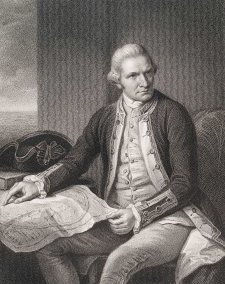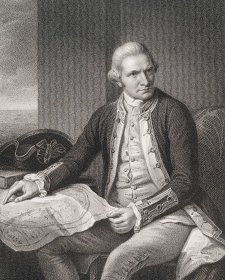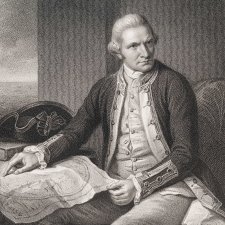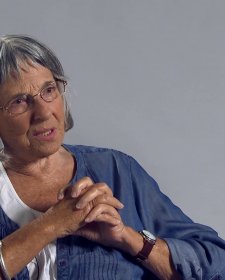- About us
- Support the Gallery
- Venue hire
- Publications
- Research library
- Organisation chart
- Employment
- Contact us
- Make a booking
- Onsite programs
- Online programs
- School visit information
- Learning resources
- Little Darlings
- Professional learning
James Cook (1728-1779), maritime explorer, surveyed and claimed the east coast of Australia on the first of his three great voyages of discovery in the Pacific. Cook's father was a labourer and he attended the village school before gaining a job in a shop. In 1747 he took up an apprenticeship with a coal-shipper in Whitby. Through application to his studies, particularly of mathematics, he prospered, and saw action around the Gulf of St Lawrence, where he developed his extraordinary expertise in surveying and mapping. In mid-1768 he was chosen by the Admiralty to observe the transit of Venus in Tahiti. Henceforth, he was almost continually at sea until his death in early 1779. Cook opened up vast areas that had previously been only tentatively investigated, and charted them with extraordinary accuracy. Accounts produced from his voyages provided Europeans with their first glimpse of the culture, wildlife and geography of lands as diverse as Tahiti and Alaska, and as a result of measures he took to raise standards of hygiene and nutrition on board his ships, there was an appreciable improvement in the health of future British seamen. Cook was killed at Kealakekua Bay, Hawaii, on 14 February 1779, after having left and then returned to make essential repairs.
Collection: National Portrait Gallery
Gift of Ted and Gina Gregg 2012
William Holl (age 30 in 1837)
Loretta Pash (40 portraits)



On one level The Companion talks about the most famous and frontline Australians, but on another it tells us about ourselves.



A focus on Indigenous-European relationships underpins Facing New Worlds. By Kate Fullagar.



Betty Churcher describes the creation of the portrait of Captain James Cook in the National Portrait Gallery.